31/10/2022 – 03/11/2022
-, Singapore
ILSI supports three technical sessions at the IUFoST 2022, focusing on protein, food-omics, and packaging. Check out more details on this page.
26/04/2022
Singapore, Singapore
17/03/2022 – 18/03/2022
Virtual Workshop, via Zoom
This is a closed-door workshop, organized by ILSI SEA Region and the ASEAN Risk Assessment Centre (ARAC) will serve as the kick-start program of the capacity building initiative, focusing on how to prepare risk assessment request for quantitative MRA.
15/03/2022
Manila, Philippines
The promotion of sustainable food production depends on the adoption of innovative agricultural technologies to improve productivity and efficiency, reduce post-harvest losses, address climate change as well as, promote food and nutrition security.
WP_Query Object
(
[query] => Array
(
[post_type] => event
[posts_per_page] => 5
[type] =>
[area] =>
[before] =>
[after] =>
[tags] =>
[showtitle] =>
[meta_query] => Array
(
[relation] => Array
(
[0] => AND
[1] => AND
)
[0] => Array
(
[key] => _ilsi_date
[value] => Array
(
[0] => 2022-01-01
[1] => 2022-12-31
)
[compare] => BETWEEN
)
[1] => Array
(
[key] => _ilsi_date
[value] => 2022-12-31
[compare] => <
)
)
[paged] => 1
[meta_key] => _ilsi_date
[orderby] => meta_value
[order] => DESC
)
[query_vars] => Array
(
[post_type] => event
[posts_per_page] => 5
[type] =>
[area] =>
[before] =>
[after] =>
[tags] =>
[showtitle] =>
[meta_query] => Array
(
[relation] => Array
(
[0] => AND
[1] => AND
)
[0] => Array
(
[key] => _ilsi_date
[value] => Array
(
[0] => 2022-01-01
[1] => 2022-12-31
)
[compare] => BETWEEN
)
[1] => Array
(
[key] => _ilsi_date
[value] => 2022-12-31
[compare] => <
)
)
[paged] => 1
[meta_key] => _ilsi_date
[orderby] => meta_value
[order] => DESC
[error] =>
[m] =>
[p] => 0
[post_parent] =>
[subpost] =>
[subpost_id] =>
[attachment] =>
[attachment_id] => 0
[name] =>
[pagename] =>
[page_id] => 0
[second] =>
[minute] =>
[hour] =>
[day] => 0
[monthnum] => 0
[year] => 0
[w] => 0
[category_name] =>
[tag] =>
[cat] =>
[tag_id] =>
[author] =>
[author_name] =>
[feed] =>
[tb] =>
[meta_value] =>
[preview] =>
[s] =>
[sentence] =>
[title] =>
[fields] =>
[menu_order] =>
[embed] =>
[category__in] => Array
(
)
[category__not_in] => Array
(
)
[category__and] => Array
(
)
[post__in] => Array
(
)
[post__not_in] => Array
(
)
[post_name__in] => Array
(
)
[tag__in] => Array
(
)
[tag__not_in] => Array
(
)
[tag__and] => Array
(
)
[tag_slug__in] => Array
(
)
[tag_slug__and] => Array
(
)
[post_parent__in] => Array
(
)
[post_parent__not_in] => Array
(
)
[author__in] => Array
(
)
[author__not_in] => Array
(
)
[search_columns] => Array
(
)
[ignore_sticky_posts] =>
[suppress_filters] =>
[cache_results] => 1
[update_post_term_cache] => 1
[update_menu_item_cache] =>
[lazy_load_term_meta] => 1
[update_post_meta_cache] => 1
[nopaging] =>
[comments_per_page] => 50
[no_found_rows] =>
)
[tax_query] => WP_Tax_Query Object
(
[queries] => Array
(
)
[relation] => AND
[table_aliases:protected] => Array
(
)
[queried_terms] => Array
(
)
[primary_table] => wp_21_posts
[primary_id_column] => ID
)
[meta_query] => WP_Meta_Query Object
(
[queries] => Array
(
[0] => Array
(
[key] => _ilsi_date
)
[1] => Array
(
[0] => Array
(
[key] => _ilsi_date
[value] => Array
(
[0] => 2022-01-01
[1] => 2022-12-31
)
[compare] => BETWEEN
)
[1] => Array
(
[key] => _ilsi_date
[value] => 2022-12-31
[compare] => <
)
[relation] => AND
)
[relation] => AND
)
[relation] => AND
[meta_table] => wp_21_postmeta
[meta_id_column] => post_id
[primary_table] => wp_21_posts
[primary_id_column] => ID
[table_aliases:protected] => Array
(
[0] => wp_21_postmeta
[1] => mt1
[2] => mt2
)
[clauses:protected] => Array
(
[wp_21_postmeta] => Array
(
[key] => _ilsi_date
[compare] => =
[compare_key] => =
[alias] => wp_21_postmeta
[cast] => CHAR
)
[mt1] => Array
(
[key] => _ilsi_date
[value] => Array
(
[0] => 2022-01-01
[1] => 2022-12-31
)
[compare] => BETWEEN
[compare_key] => =
[alias] => mt1
[cast] => CHAR
)
[mt2] => Array
(
[key] => _ilsi_date
[value] => 2022-12-31
[compare] => <
[compare_key] => =
[alias] => mt2
[cast] => CHAR
)
)
[has_or_relation:protected] =>
)
[date_query] =>
[request] =>
SELECT SQL_CALC_FOUND_ROWS wp_21_posts.ID
FROM wp_21_posts INNER JOIN wp_21_postmeta ON ( wp_21_posts.ID = wp_21_postmeta.post_id ) INNER JOIN wp_21_postmeta AS mt1 ON ( wp_21_posts.ID = mt1.post_id ) INNER JOIN wp_21_postmeta AS mt2 ON ( wp_21_posts.ID = mt2.post_id )
WHERE 1=1 AND (
wp_21_postmeta.meta_key = '_ilsi_date'
AND
(
( mt1.meta_key = '_ilsi_date' AND mt1.meta_value BETWEEN '2022-01-01' AND '2022-12-31' )
AND
( mt2.meta_key = '_ilsi_date' AND mt2.meta_value < '2022-12-31' )
)
) AND ((wp_21_posts.post_type = 'event' AND (wp_21_posts.post_status = 'publish' OR wp_21_posts.post_status = 'acf-disabled')))
GROUP BY wp_21_posts.ID
ORDER BY wp_21_postmeta.meta_value DESC
LIMIT 0, 5
[posts] => Array
(
[0] => WP_Post Object
(
[ID] => 29493
[post_author] => 353
[post_date] => 2022-11-16 01:59:30
[post_date_gmt] => 2022-11-16 01:59:30
[post_content] =>
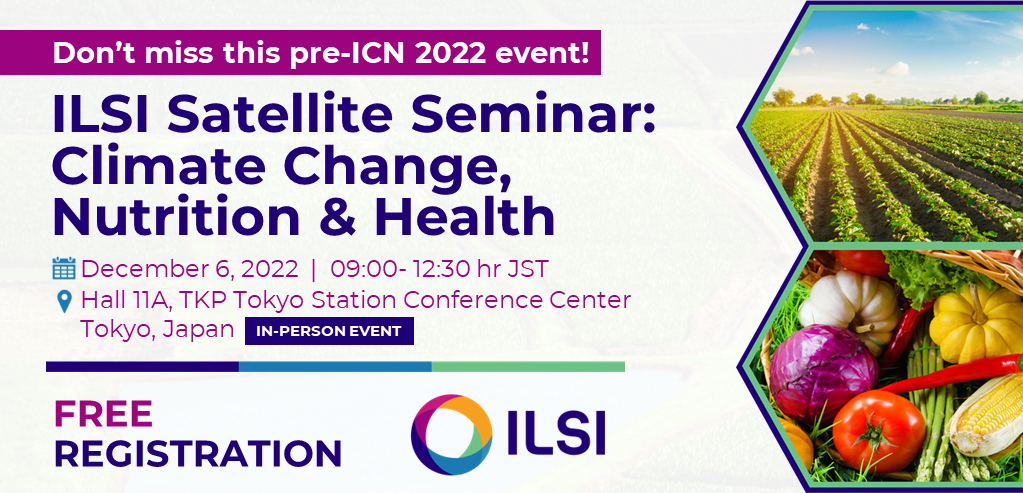
Background
According to the World Resources Institute, global temperatures have risen by 1.1 ºC, with call to limit target increase to within 1.5 ºC goals for 2050, while UNEP is predicting a bleak scenario with temperature rise of 2.4-2.6°C by the end of this century. The just published 2022 Lancet Countdown Report on Health and Climate Change highlighted the predicament of increased risk of food insecurity, infectious disease transmissions and heat related ailments, putting additional strain on health systems and productivities. as experience by recent global pandemic outbreak, extreme heat waves, increase precipitations and other natural disasters. The potential impact of diet and nutrition in mitigating the effect of climate change such as heat proofing humans and heat stress management is largely underexplored, yet an important area to investigate where strategies have traditionally been focused on the environment, clothing and physiological conditioning.
As the world prepare responses to the ongoing crises, adopting and harnessing various approaches to mitigate the detrimental effect of climate change and carbon emission, a focus on diet and nutrition status, human health and wellbeing must also be prioritized.
Download Program
Download Summary Report
Registration Details
Key Information
Venue Location
Key Information
REGISTRATION IS FREE on first-come, first-serve basis due to limited available seats. Registration will be closed on December 4, 2022, 5pm SGT/ 6pm JST.
Register using the button above or through this link.
Please allow ILSI SEA Region Secretariat 3-5 working days to process your registration. You will receive an email from us to confirm your registration.
Venue Location
This is a half-day IN-PERSON event to be held in TKP Tokyo Station Convention Center, Hall 11A, Shin-Makicho Building 11F, 1-8-16 Yaesu Chuo-ku, Tokyo 103-0028, Japan.
Please refer to the map below or click here for the directions:
PROGRAM
Chair: Prof. Louise Dye, Nutrition & Behaviour, School of Psychology, University of Leeds, UK
Expand

Professor Louise Dye is Co-Chair of the ILSI Global Board. She is Professor of Nutrition and Behaviour in the School of Psychology and until recently was Academic Lead for the University of Leeds of the N8 Agrifood Programme. She chairs the BBSRC Strategic Advisory Panel for Integrated Understanding of Biosciences for Health and chaired their Neuroscience and Mental Health Working Group. Louise is a Chartered Health Psychologist and British Psychological Society member. She began her career in Human Psychopharmacology and has over 30 years' experience in the assessment of nutritional and pharmacological intervention on cognitive function and wellbeing. She is Associate Editor of Nutritional Neuroscience and former associate editor of the European Journal of Nutrition. Louise has served on several of ILSI Europe's expert groups, including as President and Chair of the Scientific Advisory Committee.
Topic 1: Dr. Jason Lee, National University of Singapore, Singapore
Expand
Heat Health in Face of Climate Change: Nutritional Considerations
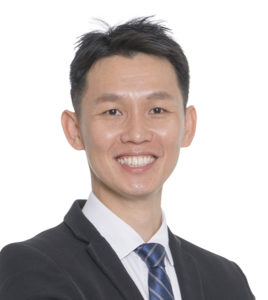 Jason Lee (PhD, FACSM) is an Associate Professor based at Human Potential Translational Research Programme in the School of Medicine at the National University of Singapore. He is a Fellow of the American College of Sports Medicine. Jason completed his 12-year tenure at the DSO National Laboratories in 2018 by directing the Human Performance Programme in his final appointment. He currently directs the Heat Resilience and Performance Centre based at the university and chairs the Scientific Committee on Thermal Factors at the International Commission on Occupational Health. He also chairs Sports Advisory Committee at Ministry of Culture, Community and Youth in Singapore. Jason studies the physiological demands associated with heat stress and how humans adapt to ensure optimum performance and survival. He is a member of the WHO and WMO Report on Climate Change on Workers' Health and Productivity is on the management committee at the Global Heat Health Information Network.
Jason Lee (PhD, FACSM) is an Associate Professor based at Human Potential Translational Research Programme in the School of Medicine at the National University of Singapore. He is a Fellow of the American College of Sports Medicine. Jason completed his 12-year tenure at the DSO National Laboratories in 2018 by directing the Human Performance Programme in his final appointment. He currently directs the Heat Resilience and Performance Centre based at the university and chairs the Scientific Committee on Thermal Factors at the International Commission on Occupational Health. He also chairs Sports Advisory Committee at Ministry of Culture, Community and Youth in Singapore. Jason studies the physiological demands associated with heat stress and how humans adapt to ensure optimum performance and survival. He is a member of the WHO and WMO Report on Climate Change on Workers' Health and Productivity is on the management committee at the Global Heat Health Information Network.
Topic 2: Dr. Malcolm Riley, CSIRO Health and Biosecurity, Australia
Expand
Dietary Guidelines and Climate Change - Gaps and Future Directions
 Dr. Malcolm Riley is an epidemiologist and dietitian with experience in non-communicable diseases. He is interested in the social determinants of poor health and the role of individual and community choice. Malcolm has undertaken fieldwork and project activities in settings in Africa, Asia and Australia; and is a past president of the Nutrition Society of Australia. In his present role, Malcolm leads the Public Health and Wellbeing group within the Human Health program of Australia's government science agency, the Commonwealth Scientific and Industrial Research Organization (CSIRO). The group blends behaviour science specialists with nutrition science specialists and has a focus on programs for the maintenance of good health, which includes consideration of behavioural, technological, environmental and governance elements.
Dr. Malcolm Riley is an epidemiologist and dietitian with experience in non-communicable diseases. He is interested in the social determinants of poor health and the role of individual and community choice. Malcolm has undertaken fieldwork and project activities in settings in Africa, Asia and Australia; and is a past president of the Nutrition Society of Australia. In his present role, Malcolm leads the Public Health and Wellbeing group within the Human Health program of Australia's government science agency, the Commonwealth Scientific and Industrial Research Organization (CSIRO). The group blends behaviour science specialists with nutrition science specialists and has a focus on programs for the maintenance of good health, which includes consideration of behavioural, technological, environmental and governance elements.
Topic 3: Dr Keiji Nakamura, Ajinomoto Inc. Tokyo Japan/ Tokyo City University, Yokohama, Japan
Expand
Environmental and Health-related Impact of Life Cycle Assessment of Reduced-Salt Meals in Japan
 Keiji Nakamura is a lifecycle assessment researcher with 9 years of experiences in the Ajinomoto Co., Inc. Keiji developed carbon and water footprint for seasoning and processed food, and calculated Scope 1, 2 and 3 for the Ajinomoto Group based on these carbon footprints. Keiji aims to decrease environment impact from food sector. Keiji conducted environment assessment of carbon, water consumption and eutrophication as three criteria about environmental contributions of pig feed with industrial amino acid supplements as first article. Keiji aims to decrease food sector impact not only environment impact but also health impact. Keiji conducted comprehensive damage assessment converted to human health DALYs from three criteria which were evaluated environment assessment of carbon, water and air pollution about effective utilization rice straw caused smoke pollution as second article. Keiji aims to develop comprehensive better diet for human and earth. Keiji conducted environment and health related impact assessment for food throughout applying evaluation between improving nutrients intake and morbidity decreasing rate of relative disease as third article.
Keiji Nakamura is a lifecycle assessment researcher with 9 years of experiences in the Ajinomoto Co., Inc. Keiji developed carbon and water footprint for seasoning and processed food, and calculated Scope 1, 2 and 3 for the Ajinomoto Group based on these carbon footprints. Keiji aims to decrease environment impact from food sector. Keiji conducted environment assessment of carbon, water consumption and eutrophication as three criteria about environmental contributions of pig feed with industrial amino acid supplements as first article. Keiji aims to decrease food sector impact not only environment impact but also health impact. Keiji conducted comprehensive damage assessment converted to human health DALYs from three criteria which were evaluated environment assessment of carbon, water and air pollution about effective utilization rice straw caused smoke pollution as second article. Keiji aims to develop comprehensive better diet for human and earth. Keiji conducted environment and health related impact assessment for food throughout applying evaluation between improving nutrients intake and morbidity decreasing rate of relative disease as third article.
Topic 4: Dr. Kyoko Fujihira, Tokyo Institute of Technology, Japan
Expand
Nutritional Strategies to Thermal Stimulation: Focusing on Appetite Responses
 Dr. Kyoko Fujihira is Research Fellow of the Japan Society for the Promotion of Science at the Tokyo Institute of Technology. Her current research focus on appetite regulation, gastric motility, and exercise and nutritional epidemiology. She is particularly interested in the effects of thermal stimulation from inside and outside the body on appetite and gastric motility, and assesses gastric motility using ultrasound machines and stable isotope breath tests. Kyoko graduated from Tokyo Gakugei University with a bachelor's degree in education and an academic master's degree. She obtained her Ph.D. in Sport Science from Waseda University under sponsorship from the Japan Society for the Promotion of Science. Kyoko received student awards for her research activities in the master's and doctoral programs. In the doctoral program, Kyoko was supported by a graduate student travel grant and studied at Loughborough University (UK) and KULeuven (Belgium). Since 2020, Kyoko has been working in Research Team for Social Participation and Community Health at the Tokyo Metropolitan Institute of Gerontology, conducting epidemiological studies on young and elderly subjects. She is currently engaged in research at the Tokyo Institute of Technology and lectures about Health Science in Tokyo Institute of Technology and Hosei University.
Dr. Kyoko Fujihira is Research Fellow of the Japan Society for the Promotion of Science at the Tokyo Institute of Technology. Her current research focus on appetite regulation, gastric motility, and exercise and nutritional epidemiology. She is particularly interested in the effects of thermal stimulation from inside and outside the body on appetite and gastric motility, and assesses gastric motility using ultrasound machines and stable isotope breath tests. Kyoko graduated from Tokyo Gakugei University with a bachelor's degree in education and an academic master's degree. She obtained her Ph.D. in Sport Science from Waseda University under sponsorship from the Japan Society for the Promotion of Science. Kyoko received student awards for her research activities in the master's and doctoral programs. In the doctoral program, Kyoko was supported by a graduate student travel grant and studied at Loughborough University (UK) and KULeuven (Belgium). Since 2020, Kyoko has been working in Research Team for Social Participation and Community Health at the Tokyo Metropolitan Institute of Gerontology, conducting epidemiological studies on young and elderly subjects. She is currently engaged in research at the Tokyo Institute of Technology and lectures about Health Science in Tokyo Institute of Technology and Hosei University.
Topic 5: Dr. Cecilia Cristina Santos-Acuin, University of the Philippines, Los Baños, Philippines
Expand
Harnessing New Technologies in Enhancing Sustainable Agri-Food Production and Nutrition - Challenges and Opportunities for the Developing Asia

Dr. Cecilia Cristina Santos-Acuin is an Associate Professor at the Institute of Human Nutrition and Food, University of the Philippines, Los Baños and served as Senior Scientist, lead for Human Nutrition, at the International Rice Research Institute (IRRI), Philippines until May 2020.
Prior to her work at IRRI she was also the Chief Science Research Specialist, Nutritional Assessment & Monitoring Division and Chair, Institutional Ethics Committee at the Food & Nutrition Research Institute (FNRI), Department of Science & Technology, Philippines. In this position, she was responsible for the conduct of the Philippine National Nutrition Surveys, and oversaw nutrition research projects of three Sections: the Nutritional Assessment Section, the Nutritional Statistics and Informatics Section, and the Nutritional Interventions, Evaluation and Policy Section. Her research interests are in the areas of maternal and child health and nutrition, food security, food and health systems and operations research, and risk factors of non-communicable diseases.
Dr. Acuin's involvement in multi-country research initiatives includes the following among many others: as a Member of the International Union of Nutritional Sciences Committee on Nutrition and Anthropology; and as a Consultant and Vice-Chair of the WPRO Regional Advisory Committee on Health Research in the WHO Western Pacific Region. In the Philippines, Dr. Acuin has been the Co-Chair of the Philippine National Health Research System, Research Utilization Committee; Head of the Secretariat of the Universal Health Care (UHC) Study Group; Consultant in various capacities of USAID, UNICEF, World Bank, etc., as well as for academic institutions and local organizations such as the Zuellig Family Foundation among others. She obtained her Ph.D. in Nutrition with minors in Nutritional Epidemiology and Risk Communication from Cornell University, USA.
Panel Moderator: Dr. Jason Lee, National University of Singapore, Singapore
Expand
 Jason Lee (PhD, FACSM) is an Associate Professor based at Human Potential Translational Research Programme in the School of Medicine at the National University of Singapore. He is a Fellow of the American College of Sports Medicine. Jason completed his 12-year tenure at the DSO National Laboratories in 2018 by directing the Human Performance Programme in his final appointment. He currently directs the Heat Resilience and Performance Centre based at the university and chairs the Scientific Committee on Thermal Factors at the International Commission on Occupational Health. He also chairs Sports Advisory Committee at Ministry of Culture, Community and Youth in Singapore. Jason studies the physiological demands associated with heat stress and how humans adapt to ensure optimum performance and survival. He is a member of the WHO and WMO Report on Climate Change on Workers' Health and Productivity is on the management committee at the Global Heat Health Information Network.
Jason Lee (PhD, FACSM) is an Associate Professor based at Human Potential Translational Research Programme in the School of Medicine at the National University of Singapore. He is a Fellow of the American College of Sports Medicine. Jason completed his 12-year tenure at the DSO National Laboratories in 2018 by directing the Human Performance Programme in his final appointment. He currently directs the Heat Resilience and Performance Centre based at the university and chairs the Scientific Committee on Thermal Factors at the International Commission on Occupational Health. He also chairs Sports Advisory Committee at Ministry of Culture, Community and Youth in Singapore. Jason studies the physiological demands associated with heat stress and how humans adapt to ensure optimum performance and survival. He is a member of the WHO and WMO Report on Climate Change on Workers' Health and Productivity is on the management committee at the Global Heat Health Information Network.
ILSI Booth at IUNS-ICN 2022
Drop by our exhibition booth at B-21, Hall E, B2 floor, Tokyo International Forum, Tokyo, Japan!
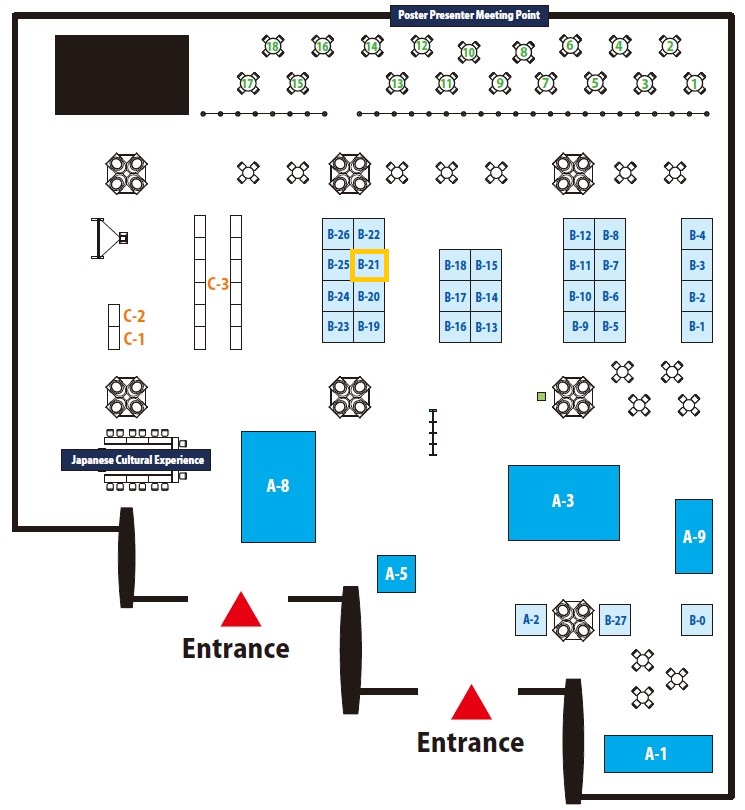
ORGANIZERS

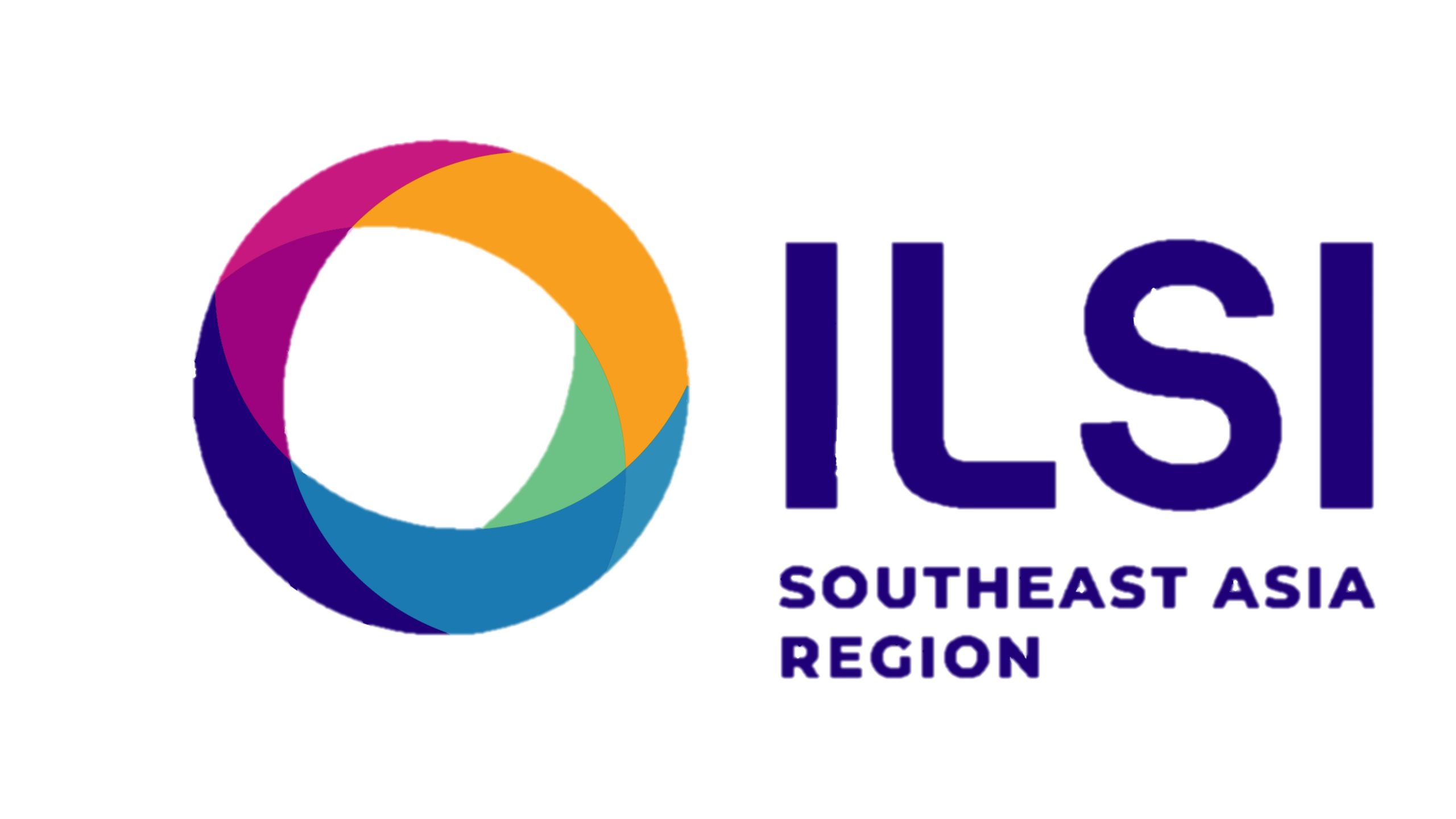
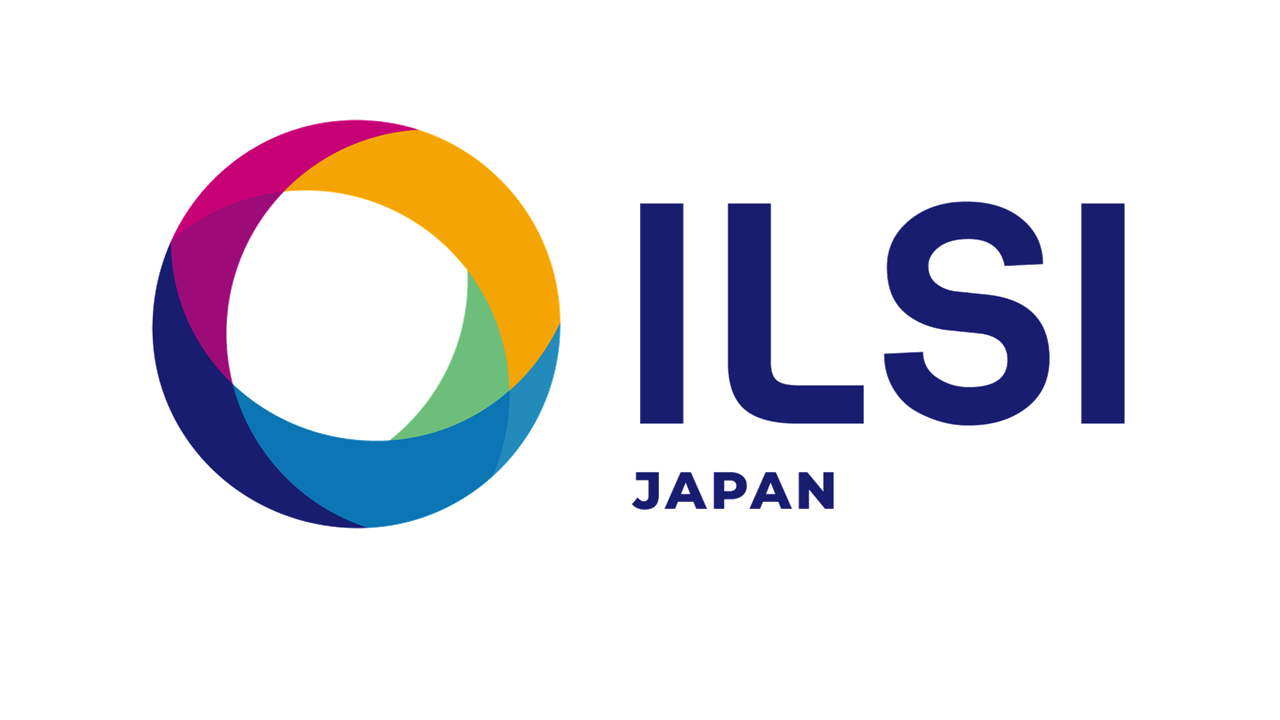
Contact Us
If you have any inquiries, please do not hesitate to contact us at event@ilsisea.org.sg .
[post_title] => ILSI Satellite Seminar: Climate Change, Nutrition & Health
[post_excerpt] =>
[post_status] => publish
[comment_status] => closed
[ping_status] => closed
[post_password] =>
[post_name] => climatechange-nutrition-health
[to_ping] =>
[pinged] =>
[post_modified] => 2023-04-05 02:12:44
[post_modified_gmt] => 2023-04-05 02:12:44
[post_content_filtered] =>
[post_parent] => 0
[guid] => https://ilsisea-region.org/?post_type=event&p=29493
[menu_order] => 0
[post_type] => event
[post_mime_type] =>
[comment_count] => 0
[filter] => raw
)
[1] => WP_Post Object
(
[ID] => 29401
[post_author] => 80
[post_date] => 2022-07-19 05:02:37
[post_date_gmt] => 2022-07-19 05:02:37
[post_content] =>
#protein #foodomics #foodpackaging
October 31, 2022; 15-30-17:00 hr at BR5 -- Future of Protein -Science, Innovation and Dietary Shifts
Expand
This session will be chaired by Prof. Hannelore Daniel, Technical University of Munich.

Prof. Hannelore Daniel, Professor Emerita (School of Life Sciences), Technical University of Munich (TUM), Germany. Prof. Daniel held as her last position - chair and director in Human Nutrition at the TUM, Germany. Her main research interests have been the genetic, molecular, and cellular basis of mammalian metabolism. This research led her into nutrigenomics and personalized nutrition.
Prof. Daniel is a nutrition expert by training and worked in Germany, UK and the USA. She is a member of the German National Academy of Sciences and an advisor for national and international funding agencies, research centres and the EU commission. She also chaired the scientific advisory board of the EU Joint Programming Initiative "A healthy diet for a healthy life" and was a member of the national Bioeconomy council in Germany. She received numerous scientific awards including the "Pro meritis-Award" as the most prestigious science award in the state of Bavaria. Prof. Daniel studied nutritional sciences at Justus Liebig University in Giessen. She received her doctorate in 1982.
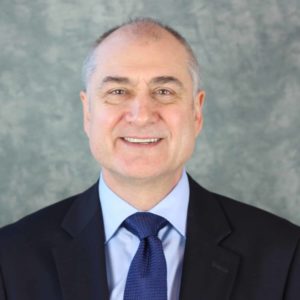 Dr. Kerr Dow is Co-Chair of the ILSI Global Board. He retired in 2020 as Vice President, Research and Development from Cargill Inc., where he led a scientific organization covering Technical Service, Research, Product & Process Development, Scientific and Regulatory Affairs, Intellectual Asset Management and Food Applications, across North America, Europe, Latin America and Asia. Before joining Cargill in January 2007, Kerr held the position of Vice President, Global Innovation and Quality and Chief Technical Officer of the H.J. Heinz Company.
Dr. Kerr Dow is Co-Chair of the ILSI Global Board. He retired in 2020 as Vice President, Research and Development from Cargill Inc., where he led a scientific organization covering Technical Service, Research, Product & Process Development, Scientific and Regulatory Affairs, Intellectual Asset Management and Food Applications, across North America, Europe, Latin America and Asia. Before joining Cargill in January 2007, Kerr held the position of Vice President, Global Innovation and Quality and Chief Technical Officer of the H.J. Heinz Company.
Future of Protein
 Prof. Michelle Colgrave, Professor, Future Protein Mission Leader, CSIRO, Australia
Prof. Michelle Colgrave, Professor, Future Protein Mission Leader, CSIRO, Australia
Estimates predict that 70 per cent more food will be required to feed the growing global population which will reach 9.7 billion by 2050. The challenge will be how to meet this global food gap while maintaining our planet's health. Australia's traditional animal and plant protein offer an opportunity to address this gap, with emerging sources of protein seen as complementary. We are witnessing changing dietary patterns, with increasing numbers of flexitarians, due to concerns over the environment, animal welfare and personal health and nutrition. In response to the growing demand for protein, technologists have been searching for cost-effective, resource-efficient and environmentally friendly protein technologies and solutions that can support traditional industries or create new industries. In this presentation, the opportunities and challenges in growing Australia's protein industries will be discussed.
Issues for Protein and Health - Identifying the Gaps
 Prof. Christiani Jeyakumar Henry, Deputy Executive Director, SIFBI /CNRC, Singapore
Prof. Christiani Jeyakumar Henry, Deputy Executive Director, SIFBI /CNRC, Singapore
Proteins are essential components for human life. Historically, our needs for protein have been met by the consumption of animal meat, fish, poultry, whole legumes, and cereals. With the global increase in the production of alternative protein-based foods, our access to protein foods has been revolutionized. Whilst embracing the new technologies used in the production of alternative protein foods, it is important for us to understand the nutritional, and physiological impact that the transition from eating conventional protein sources to the consumption of alternative proteins may have. This presentation will showcase and highlight the opportunities and challenges we face in the development of next-generation alternative proteins that not only have excellent taste, texture, and sensory properties but critically, have nutritional and health advantages. With increasing global population, we also need to consider how the "alternative protein" revolution could also include the nutritional needs of the less fortunate that approximate 3 billion people. This understanding will enable the next generation of alternative proteins to be widely accepted in our quest for planetary and human health.
Bioprocessing for Innovative Alternative Proteins - Cultivated meat, fermentation-derived products & plant-based meat alternatives
 Dr. Deepak Choudhury, Group Leader & Senior Scientist, Biomanufacturing Technology, Bioprocessing Technology Institute (BTI), A*STAR, Singapore
Dr. Deepak Choudhury, Group Leader & Senior Scientist, Biomanufacturing Technology, Bioprocessing Technology Institute (BTI), A*STAR, Singapore
It won't be an overstatement to say that innovations in Alternative Proteins have taken the world by storm. There are increasing demands from informed consumers for nutritious, delicious, affordable, and easily accessible sources of alternative proteins as traditional products. As per the Good Food Institute (GFI) estimates, the alternative proteins companies have raised a total of $11.1 billion since 2010, half of which has been raised in 2021 itself! The heart of the alternative proteins' revolution lies in the bioprocessing of relevant cells, especially for cultivated meat and fermentation-derived products. The speaker will quickly dive into innovative alternative protein-based product development, vital technological challenges, and unique proposed solutions to make the scale-up of alternative proteins a reality. The session is proposed to touch upon aspects of cells, media, scaffolds, and bioreactor hardware development, as well as how fermentation is exploited as a critical technical tool to produce various ingredients.
November 2, 2022; 1030-1200 hr at BR5 -- Food-omics - Rethinking Analytical Tools for Food Components and Their Health Impact
Expand
This session will be chaired by Mr. Geoffry Smith, President of ILSI SEA Region.
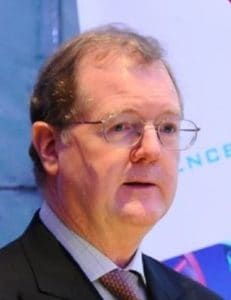 Mr. Geoffry Smith is President of ILSI Southeast Asia Region based in Singapore, and a Representative of the branch to the ILSI Global Assembly. He is also the Chairman of the Essential Micronutrients Foundation, a non-profit organization which addresses micronutrient deficiencies globally as a public health issue. In addition, he is Director of Nutrition Strategies International which deals with food and nutrition issues in developing countries. Mr. Smith serves as a member of the editorial board of the journal Food and Nutrition Bulletin. Prior to his current positions, Mr. Smith was the Global Director, Health Chelates for Akzo Nobel Functional Chemicals, and directed the global business for these compounds in food and nutrition as well as pharmaceutical applications. He was responsible for the global project within Akzo Nobel addressing iron deficiency anemia.
Mr. Geoffry Smith is President of ILSI Southeast Asia Region based in Singapore, and a Representative of the branch to the ILSI Global Assembly. He is also the Chairman of the Essential Micronutrients Foundation, a non-profit organization which addresses micronutrient deficiencies globally as a public health issue. In addition, he is Director of Nutrition Strategies International which deals with food and nutrition issues in developing countries. Mr. Smith serves as a member of the editorial board of the journal Food and Nutrition Bulletin. Prior to his current positions, Mr. Smith was the Global Director, Health Chelates for Akzo Nobel Functional Chemicals, and directed the global business for these compounds in food and nutrition as well as pharmaceutical applications. He was responsible for the global project within Akzo Nobel addressing iron deficiency anemia.
Proteomics - a versatile tool for revealing protein food value, allergenicity and food pathogens
 Prof. Michelle Colgrave, Professor, Future Protein Mission Leader, CSIRO, Australia
Prof. Michelle Colgrave, Professor, Future Protein Mission Leader, CSIRO, Australia
A major challenge facing the world is providing protein security in the face of a growing global population. To this end, we have started exploring different crops and food sources from pulses to insects to algae and more. As we pivot towards these under-utilized resources, the potential exists for the increasing prevalence of allergy or cross-reactivity. Soy is a mainstay of the plant protein ingredient market, but new plant protein sources are emerging. For instance, lupin seeds possess high protein content (35-44%) and many health-promoting benefits (lowering cholesterol and blood pressure, managing glucose levels). But lupin also contains proteins that can trigger life-threatening anaphylaxis. Another complementary, sustainable source of protein to feed the world's growing population is insects. Insects have been consumed by people for millennia, but belong to the arthropod family, like crustaceans. Crustacean (shellfish) allergies are both relatively common and potentially severe; hence, the cross-reactivity of the immune system with insect proteins (e.g., tropomyosin and arginine kinase) is a potential health concern. The development of insects for food requires technology to explore their allergenic potential. In this presentation, the role of proteomics as a powerful tool to characterize both nutritional and antinutritional proteins in emerging protein sources will be discussed.
The intergenerational landscape of the human circulatory lipidome during pregnancy and early life
 Prof. Markus Wenk, Professor, Yong Loo Lin School of Medicine, National University of Singapore, Singapore
Prof. Markus Wenk, Professor, Yong Loo Lin School of Medicine, National University of Singapore, Singapore
Pregnancy and early child development are characterised by profound changes in physiology and metabolism. Here I will highlight results from our recent biochemical characterization of large Singapore birth cohorts. Mass spectrometry-based lipidomics was used to measure hundreds of circulating lipid metabolites in mothers and their offspring until early childhood. We have also characterized inter- and intra-individual (morning versus evening) variability of breastmilk. Collectively, these studies are providing valuable information maps to advance our knowledge in the fields of nutritional science, endocrinology, and pediatrics.
Measuring the health effects of food by metabolomics and other omics sciences: An example using volatilomics of several Zingiberaceae spices from Indonesia
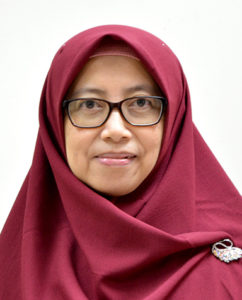 Dr. Nancy Dewi Yuliana, Associate Professor, Department of Food Science and Technology, IPB University, Indonesia
Dr. Nancy Dewi Yuliana, Associate Professor, Department of Food Science and Technology, IPB University, Indonesia
Metabolomics is one of the emerging biomarker discovery tools that has received a lot of interest. It enables systematic investigation of a complex mixture, such as a botanical preparation or food product, which may be linked to the results of biological testing systems to identify active principles without the need for recurrent chromatographic procedures. Metabolomics of the plant or food can be integrated with the metabolomics of the treated patients or experimental animals in order to correlate the compounds with their quantifiable health effects. Thus, how the chemicals normalize the human or experimental animal metabolome at distinct disease phases to achieve homeostasis can be investigated. In addition, metabolomics can be utilized to determine whether a substance is harmful to human health. In our lab, we conducted metabolomics-based research using several analytical platforms, primarily to describe bioactive chemicals in various plant-based foods. We recently focus on the volatile components of numerous Indonesian underutilized Zingiberaceae spices and their in vitro antioxidant, anti-diabetic, and immunomodulatory effects. Several compounds have been successfully identified. More research employing metabolomics method to link the identified chemicals with the altered metabolic pathways is being planned to provide insight on the processes behind their antioxidant, anti-diabetic, and immunomodulatory activities.
November 3, 2022; 08:30-10:00 hr at BR10 -- Food Packaging - Safety and Sustainability in the Food System
Expand
This session will be chaired by Dr. Stéphane Vidry, the ILSI Global Executive Director.
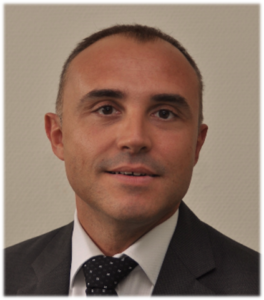
Dr. Stéphane Vidry is the Executive Director of ILSI Global, based in Washington D.C., USA. Prior to that, Stephane was Assistant Director for ILSI Europe where for 12 years, he managed several food safety-nutrition activities including coordination of a European Commission-funded project on Benefit-Risk Analysis of Foods and led a team of 7 scientists. Stephane also worked for the European Commission Joint Research Center, the international dairy company Lactalis. Stephane holds a PhD in Food Sciences from the University of Montpellier, France where he also taught.
Novel bioactive packaging: Shelf-life extension, sustainability, and safety assessment
 Prof. Cristina Nerin, Professor, Director of the Research Group GUIA, University of Zaragoza, Spain
Prof. Cristina Nerin, Professor, Director of the Research Group GUIA, University of Zaragoza, Spain
The huge amount of plastic waste around the world has caused serious environmental problems, as the plastics used so far are not biodegradable. Efforts have been made in the last years to develop and produce biodegradable polymers able to be in contact with food. However, most of these new polymers do not have the required barrier properties for most of the food in the market. Thus, the limited barrier to gases prevents the packaged food to reach the market under the same conditions as the conventional plastics do. One good approach is to get bioactive materials, what means that these new materials will contain some additional agents which will extend the shelf-life of packaged food. These new materials are called "active packaging" and can act to prevent oxidation and/or microbial growth in packaged food. As active agents, both essential oils, food additives and nanoparticles can be used, providing their efficiency and safety. But not only the shelf-life extension and sustainability are important, as the food packaging requires as well to guaranty the safety in use of all packaging materials. The presentation will show the main points of the topics and illustrate them with selected examples, dealing with biomaterials, active packaging and their safety in use.
Towards circular economy with sustainable packaging innovation: Industry perspectives* tbc
Ms. Terrynz Tan, Sustainability Director, Tetra Pak Malaysia, Singapore, Philippines & Indonesia
 Ms. Terrynz Tan joined Tetra Pak in 1996 in Marketing & Research and has spent over 20 years at the company in various roles ranging from marketing, business intelligence, key account management and communications.
Ms. Terrynz Tan joined Tetra Pak in 1996 in Marketing & Research and has spent over 20 years at the company in various roles ranging from marketing, business intelligence, key account management and communications.
In 2005, Ms. Tan took on the role of Communications & Environment Manager and subsequently, in 2007, she was appointed Environment Director for Malaysia, Singapore and the Philippines. The role expanded to oversee the Indonesia market in 2014. Currently, She is the Sustainability Director overseeing the ASEAN market.
In this role, Ms. Tan is responsible for the strategizing and implementation of Tetra Pak's environment plans and activities across the country market level. This includes developing a sustainable business model for beverage carton recycling by working closely with key stakeholders across the value chain, driving continuous improvement of recycling solutions through the development of recycling capacities and networks, and ensuring active collection and recycling participation among national waste organizations and other commercial partners. Part of her role also includes working closely with government agencies, industry organisations, NGO's, and commercial stakeholders to proactively contribute to legislative/ policy developments. Ms. Tan is a member of the Swedish Chamber of Commerce Sustainability Committee and a member of the steering committee of MAREA (Malaysian Recycling Alliance Berhad). She graduated from the National University of Malaysia with a degree in Business Administration.
Thailand's sustainable packaging roadmap and the regulatory development
 Mrs. Sumalee Tangpitayakul, Advisor, Thai Packaging Association, Thailand
Mrs. Sumalee Tangpitayakul, Advisor, Thai Packaging Association, Thailand
In Thailand, the Thai Food and Drug Administration (FDA), Ministry of Public Health (MOH) is the national authority for the safety of food packaging, while the Thai Industrial Standard Institute (TISI,) Ministry of Industry is responsible to develop various standards including food contact materials standard. Food contact materials standard covers both technical quality and safety of the product. Moreover, the Department of pollution control has set up the management of plastic waste road map for 2018-2030. The roadmap targets 1) to reduce and stop using single-use plastic, as well as 2) recycling plastic waste to create circular economy. This presentation will share the revision of Notification No. 295 of Food Act (1979) which prohibit the use of recycled plastic for food packaging to the new Notification No.435 effective since June 2022 which allows the use of recycled polyethylene terephthalate (PET), and the changes of two voluntary compostable plastics standards to mandatory standards.
Click here to download the program, abstracts, and biography of the speakers.
Session 1: Future of Protein
Session 2: Food-omics
Session 3: Food Packaging
Download Summary Report
Sessions supported by


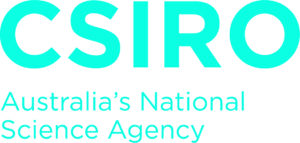
Drop by our exhibition booth at #11!

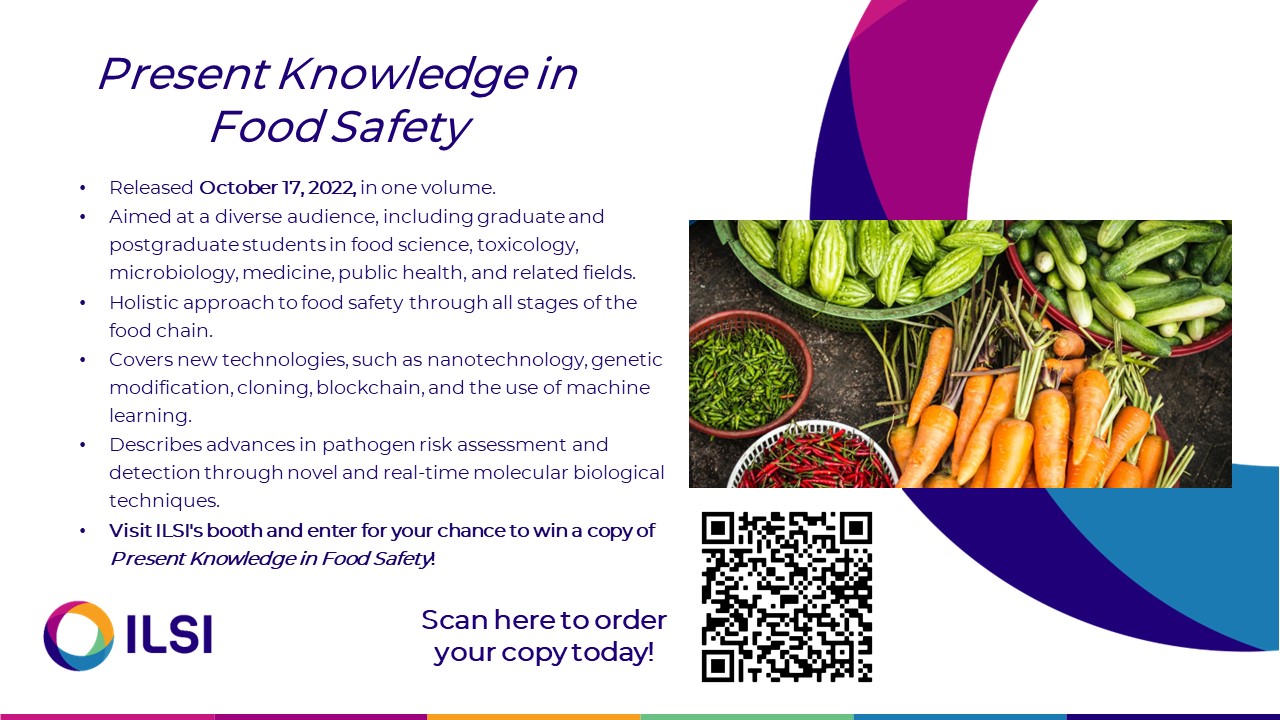
Ready to find out more?
Check out more on IUFoST 2022 Website.
Click Here
[post_title] => ILSI Sessions at IUFoST 2022 Singapore
[post_excerpt] =>
[post_status] => publish
[comment_status] => closed
[ping_status] => closed
[post_password] =>
[post_name] => ilsi-iufost2022
[to_ping] =>
[pinged] =>
[post_modified] => 2023-04-05 02:17:35
[post_modified_gmt] => 2023-04-05 02:17:35
[post_content_filtered] =>
[post_parent] => 0
[guid] => https://ilsisea-region.org/?post_type=event&p=29401
[menu_order] => 0
[post_type] => event
[post_mime_type] =>
[comment_count] => 0
[filter] => raw
)
[2] => WP_Post Object
(
[ID] => 29214
[post_author] => 80
[post_date] => 2022-04-05 09:18:48
[post_date_gmt] => 2022-04-05 09:18:48
[post_content] =>
Health Innovation and Food Systems Transformation: Re-thinking the Way Forward
The United Nations Food Systems Summit 2021 highlighted the challenges of achieving food systems transformations to provide sustainable diets for health impact. Southeast Asia and Australasia are key regions for agriculture and food production, and are home to large populations with diverse cultures and diets. Science and innovation will help to improve agricultural productivity, increase value-added food production, improve health and livelihoods while enhancing food security and reducing environmental impact. This Science Session with plenary speakers and a panel discussion will look at new technologies and innovations, and discuss actions necessary for progress, including investment and research.
Program (Time shown in GMT+8)
Invited Presentations
Expand
11:00- 11:25 AM
Microbiome and Disruptive Innovation - Changing the world in Agri-Food, Nutrition and Health Outcome
Mr. Ross Youngs, Founder & CEO, Biosortia Microbiomics, USA
 Mr. Ross Youngs, Founder and CEO of Biosortia Microbiotics, has spent over 30 years inventing products, technologies, and processes for a variety of industries, and holds over 75 patents worldwide. His recent major innovations include an R&D 100 Award for collaboration on biopolymer technologies. In 2009, Biosortia was awarded a $6 million ARPA-E (U.S. Dept. of Energy R&D) grant for its algal harvesting technology, which helped lead to the development of Biosortia's drug discovery platform. In 1998, Mr. Youngs was awarded the Ernst & Young Ohio Entrepreneur of the Year award.
Mr. Ross Youngs, Founder and CEO of Biosortia Microbiotics, has spent over 30 years inventing products, technologies, and processes for a variety of industries, and holds over 75 patents worldwide. His recent major innovations include an R&D 100 Award for collaboration on biopolymer technologies. In 2009, Biosortia was awarded a $6 million ARPA-E (U.S. Dept. of Energy R&D) grant for its algal harvesting technology, which helped lead to the development of Biosortia's drug discovery platform. In 1998, Mr. Youngs was awarded the Ernst & Young Ohio Entrepreneur of the Year award.
11:25- 11:50 AM
N-of-1 Healthcare to Food Technology: Harnessing Digital Medicine Approaches to Food and Nutrition Challenges
Prof. Dean Ho, Director, The N.1 Institute for Health (N.1), National University of Singapore, Singapore
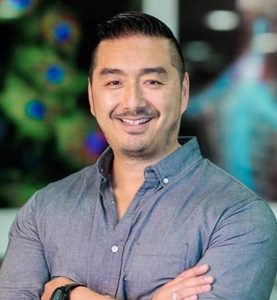
Prof. Dean Ho is the Provost's Chair Professor, Director of The N.1 Institute for Health (N.1), Director of The Institute for Digital Medicine (WisDM) and Head of the Department of Biomedical Engineering at the National University of Singapore. Prof. Ho and collaborators successfully developed and validated CURATE.AI, a powerful digital medicine platform that has optimized human treatment for broad indications ranging from oncology to infectious diseases. He is a Fellow of the US National Academy of Inventors (NAI), the American Institute for Medical and Biological Engineering (AIMBE), and the Royal Society of Chemistry. He was also recently named to the HIMSS Future50 Class of 2021 for his internationally recognized leadership in digital health.
11:50- 12:00 PM
Short Break
Panel Discussion
Expand
12:00 - 12:30 PM
Science, Innovation and Food Systems Transformation: Way Forward in SE Asia
Moderated by Mr. Geoffry Smith, President, ILSI SEA Region, Singapore.
 Mr. Geoffry Smith is President of ILSI Southeast Asia Region based in Singapore, and a Representative of the branch to the ILSI Global Assembly. He is also the Chairman of the Essential Micronutrients Foundation, a non-profit organization which addresses micronutrient deficiencies globally as a public health issue. In addition, he is Director of Nutrition Strategies International which deals with food and nutrition issues in developing countries. Mr. Smith serves as a member of the editorial board of the journal Food and Nutrition Bulletin. Prior to his current positions, Mr. Smith was the Global Director, Health Chelates for Akzo Nobel Functional Chemicals, and directed the global business for these compounds in food and nutrition as well as pharmaceutical applications. He was responsible for the global project within Akzo Nobel addressing iron deficiency anemia.
Mr. Geoffry Smith is President of ILSI Southeast Asia Region based in Singapore, and a Representative of the branch to the ILSI Global Assembly. He is also the Chairman of the Essential Micronutrients Foundation, a non-profit organization which addresses micronutrient deficiencies globally as a public health issue. In addition, he is Director of Nutrition Strategies International which deals with food and nutrition issues in developing countries. Mr. Smith serves as a member of the editorial board of the journal Food and Nutrition Bulletin. Prior to his current positions, Mr. Smith was the Global Director, Health Chelates for Akzo Nobel Functional Chemicals, and directed the global business for these compounds in food and nutrition as well as pharmaceutical applications. He was responsible for the global project within Akzo Nobel addressing iron deficiency anemia.
Panelists
Mr. Anang Nugroho, Director for Food and Agriculture, Ministry of National Development Planning, Indonesia
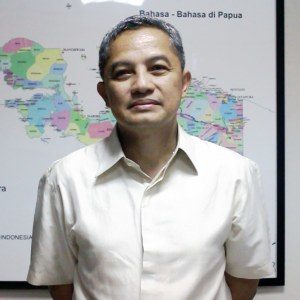 Mr. Anang Nugroho has over 30 years of experience in public service in Indonesia, and served as Director for Food and Agriculture, Ministry of National Development Planning since 2018. Besides the ministry, he has worked for several government agencies, the Cabinet Secretariat, State Secretariat, and Investment Coordinating Board. From 2013 - 2014, Mr. Nugroho served as Deputy Lead Shepherd for Ocean and Fisheries Working Group in APEC, facilitating the coordination of ocean-related issues in APEC; he also served as Coordinator for ASEAN Fisheries for Public Private Partnership in 2014. In 2014 - 2016, he served as Chairman of Financial Resources Working Group and Coordinating Mechanism Working Group for the Coral Triangle Initiative (CTI). Since 2018, Mr. Nugroho has served as the National Chair for SDG2 End Hunger.
Mr. Anang Nugroho has over 30 years of experience in public service in Indonesia, and served as Director for Food and Agriculture, Ministry of National Development Planning since 2018. Besides the ministry, he has worked for several government agencies, the Cabinet Secretariat, State Secretariat, and Investment Coordinating Board. From 2013 - 2014, Mr. Nugroho served as Deputy Lead Shepherd for Ocean and Fisheries Working Group in APEC, facilitating the coordination of ocean-related issues in APEC; he also served as Coordinator for ASEAN Fisheries for Public Private Partnership in 2014. In 2014 - 2016, he served as Chairman of Financial Resources Working Group and Coordinating Mechanism Working Group for the Coral Triangle Initiative (CTI). Since 2018, Mr. Nugroho has served as the National Chair for SDG2 End Hunger.
Mr. John Eng, Head of Agri-Food Division, Economic Development Board, Singapore
 Mr. John Eng is Acting Vice President and Head of the Agri-Food Division at the Singapore Economic Development Board. In his current role, Mr. Eng leads a team to engage with global companies and develop strategies to position Singapore as an ecosystem for Agri-Food innovation. Prior to this, he was based in EDB's Chicago Office from 2015 - 2018 as Regional Director, Americas, facilitating investments in industries such as biomedical sciences, food and nutrition, infocomms and media, natural resources, and professional services. Mr. Eng completed the Joint Masters of Translational Medicine program at the University of California, Berkeley and San Francisco, and holds a BSc with Honours in Biological Sciences from Singapore's Nanyang Technological University.
Mr. John Eng is Acting Vice President and Head of the Agri-Food Division at the Singapore Economic Development Board. In his current role, Mr. Eng leads a team to engage with global companies and develop strategies to position Singapore as an ecosystem for Agri-Food innovation. Prior to this, he was based in EDB's Chicago Office from 2015 - 2018 as Regional Director, Americas, facilitating investments in industries such as biomedical sciences, food and nutrition, infocomms and media, natural resources, and professional services. Mr. Eng completed the Joint Masters of Translational Medicine program at the University of California, Berkeley and San Francisco, and holds a BSc with Honours in Biological Sciences from Singapore's Nanyang Technological University.
Dr. Cecilia Acuin, Associate Professor, The Institute of Human Nutrition and Food, University of the Philippines Los Banos, Philippines
 Dr. Cecilia Acuin is an Associate Professor at the Institute of Human Nutrition and Food, University of the Philippines at Los Banos. Previously, she served as Senior Scientist, lead for Human Nutrition, at the International Rice Research Institute (IRRI), Philippines. She was also the Chief Science Research Specialist, Nutritional Assessment & Monitoring Division and Chair, Institutional Ethics Committee at the Food & Nutrition Research Institute (FNRI) where she was responsible for the conduct of the Philippine National Nutrition Surveys, and oversaw nutrition research projects. Dr. Acuin's involvement in multi-country research initiatives includes, among many others, Member of the International Union of Nutritional Sciences Committee on Nutrition and Anthropology; and Consultant and Vice-Chair of the WHO Western Pacific (WPRO) Regional Advisory Committee on Health Research. Dr. Acuin has also been the Co-Chair of the Philippine National Health Research System, Research Utilization Committee; and consultant in various capacities for USAID, UNICEF, World Bank etc.
Dr. Cecilia Acuin is an Associate Professor at the Institute of Human Nutrition and Food, University of the Philippines at Los Banos. Previously, she served as Senior Scientist, lead for Human Nutrition, at the International Rice Research Institute (IRRI), Philippines. She was also the Chief Science Research Specialist, Nutritional Assessment & Monitoring Division and Chair, Institutional Ethics Committee at the Food & Nutrition Research Institute (FNRI) where she was responsible for the conduct of the Philippine National Nutrition Surveys, and oversaw nutrition research projects. Dr. Acuin's involvement in multi-country research initiatives includes, among many others, Member of the International Union of Nutritional Sciences Committee on Nutrition and Anthropology; and Consultant and Vice-Chair of the WHO Western Pacific (WPRO) Regional Advisory Committee on Health Research. Dr. Acuin has also been the Co-Chair of the Philippine National Health Research System, Research Utilization Committee; and consultant in various capacities for USAID, UNICEF, World Bank etc.
Mr. Ross Youngs, Founder & CEO, Biosortia Microbiomics, USA
 Mr. Ross Youngs, Founder and CEO of Biosortia Microbiotics, has spent over 30 years inventing products, technologies, and processes for a variety of industries, and holds over 75 patents worldwide. His recent major innovations include an R&D 100 Award for collaboration on biopolymer technologies. In 2009, Biosortia was awarded a $6 million ARPA-E (U.S. Dept. of Energy R&D) grant for its algal harvesting technology, which helped lead to the development of Biosortia's drug discovery platform. In 1998, Mr. Youngs was awarded the Ernst & Young Ohio Entrepreneur of the Year award.
Mr. Ross Youngs, Founder and CEO of Biosortia Microbiotics, has spent over 30 years inventing products, technologies, and processes for a variety of industries, and holds over 75 patents worldwide. His recent major innovations include an R&D 100 Award for collaboration on biopolymer technologies. In 2009, Biosortia was awarded a $6 million ARPA-E (U.S. Dept. of Energy R&D) grant for its algal harvesting technology, which helped lead to the development of Biosortia's drug discovery platform. In 1998, Mr. Youngs was awarded the Ernst & Young Ohio Entrepreneur of the Year award.
Prof. Dean Ho, Director, The N.1 Institute for Health, National University of Singapore, Singapore

Prof. Dean Ho is the Provost's Chair Professor, Director of The N.1 Institute for Health (N.1), Director of The Institute for Digital Medicine (WisDM) and Head of the Department of Biomedical Engineering at the National University of Singapore. Prof. Ho and collaborators successfully developed and validated CURATE.AI, a powerful digital medicine platform that has optimized human treatment for broad indications ranging from oncology to infectious diseases. He is a Fellow of the US National Academy of Inventors (NAI), the American Institute for Medical and Biological Engineering (AIMBE), and the Royal Society of Chemistry. He was also recently named to the HIMSS Future50 Class of 2021 for his internationally recognized leadership in digital health.
[post_title] => Science Session in conjunction with ILSI SEA Region 2022 Annual Meeting
[post_excerpt] =>
[post_status] => publish
[comment_status] => closed
[ping_status] => closed
[post_password] =>
[post_name] => science-session2022
[to_ping] =>
[pinged] =>
[post_modified] => 2022-04-27 03:46:45
[post_modified_gmt] => 2022-04-27 03:46:45
[post_content_filtered] =>
[post_parent] => 0
[guid] => https://ilsisea-region.org/?post_type=event&p=29214
[menu_order] => 0
[post_type] => event
[post_mime_type] =>
[comment_count] => 0
[filter] => raw
)
[3] => WP_Post Object
(
[ID] => 29197
[post_author] => 80
[post_date] => 2022-02-23 02:45:02
[post_date_gmt] => 2022-02-23 02:45:02
[post_content] =>
[post_title] => Workshop on Microbiological Risk Assessment
[post_excerpt] =>
[post_status] => publish
[comment_status] => closed
[ping_status] => closed
[post_password] =>
[post_name] => microbiological-risk-assessment-p1
[to_ping] =>
[pinged] =>
[post_modified] => 2022-02-24 01:10:28
[post_modified_gmt] => 2022-02-24 01:10:28
[post_content_filtered] =>
[post_parent] => 0
[guid] => https://ilsisea-region.org/?post_type=event&p=29197
[menu_order] => 0
[post_type] => event
[post_mime_type] =>
[comment_count] => 0
[filter] => raw
)
[4] => WP_Post Object
(
[ID] => 29183
[post_author] => 80
[post_date] => 2022-02-15 03:55:30
[post_date_gmt] => 2022-02-15 03:55:30
[post_content] =>
The promotion of sustainable food production depends on the adoption of innovative agricultural technologies to improve productivity and efficiency, reduce post-harvest losses, address climate changes, as well as, promote food and nutrition security.
This two-part webinar series, organized by ILSI SEA Region Philippine Country Committee, in collaboration with Philippine Seed Industry Association, Inc. aims to provide key stakeholders with an overview of the food system, identify current gaps, share up-to-date advancements in agriculture technologies, and address food safety and nutrition in agricultural production.
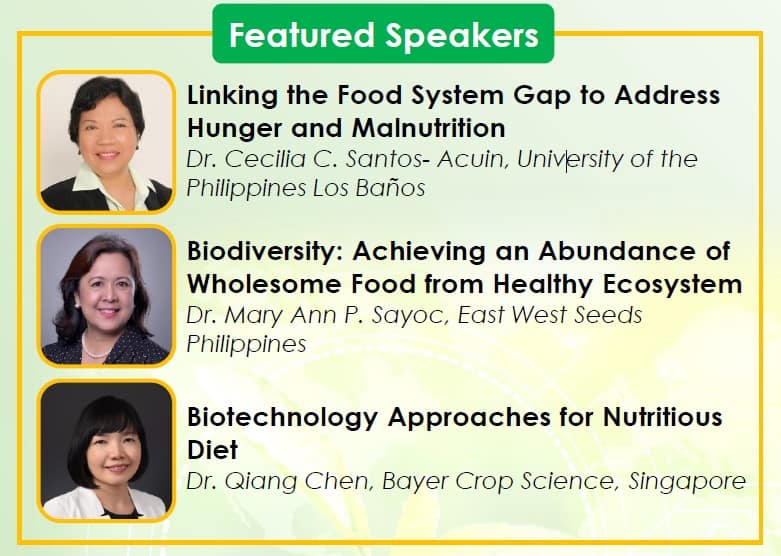
Who should attend
- Agriculture, biotechnology & food science professionals
- Food industry representatives
- Policy-makers & government representatives
- Academia, researchers & research students
- Nutrition & economics professionals
 Download Flyer
Download Summary Report
View Recording (Session 1)
View Recording (Session 2)
Download Flyer
Download Summary Report
View Recording (Session 1)
View Recording (Session 2)
For inquiries, please contact ILSI SEA Region Philippine Country Committee at ilsisearphilippinecommittee@gmail.com | 09679818947
[post_title] => Sustainable Agriculture and Food System for Better Food and Nutrition Security (Session 1)
[post_excerpt] =>
[post_status] => publish
[comment_status] => closed
[ping_status] => closed
[post_password] =>
[post_name] => sustainable-agriculture-s1
[to_ping] =>
[pinged] =>
[post_modified] => 2023-04-05 02:14:23
[post_modified_gmt] => 2023-04-05 02:14:23
[post_content_filtered] =>
[post_parent] => 0
[guid] => https://ilsisea-region.org/?post_type=event&p=29183
[menu_order] => 0
[post_type] => event
[post_mime_type] =>
[comment_count] => 0
[filter] => raw
)
)
[post_count] => 5
[current_post] => -1
[before_loop] =>
[in_the_loop] =>
[post] => WP_Post Object
(
[ID] => 29493
[post_author] => 353
[post_date] => 2022-11-16 01:59:30
[post_date_gmt] => 2022-11-16 01:59:30
[post_content] =>

Background
According to the World Resources Institute, global temperatures have risen by 1.1 ºC, with call to limit target increase to within 1.5 ºC goals for 2050, while UNEP is predicting a bleak scenario with temperature rise of 2.4-2.6°C by the end of this century. The just published 2022 Lancet Countdown Report on Health and Climate Change highlighted the predicament of increased risk of food insecurity, infectious disease transmissions and heat related ailments, putting additional strain on health systems and productivities. as experience by recent global pandemic outbreak, extreme heat waves, increase precipitations and other natural disasters. The potential impact of diet and nutrition in mitigating the effect of climate change such as heat proofing humans and heat stress management is largely underexplored, yet an important area to investigate where strategies have traditionally been focused on the environment, clothing and physiological conditioning.
As the world prepare responses to the ongoing crises, adopting and harnessing various approaches to mitigate the detrimental effect of climate change and carbon emission, a focus on diet and nutrition status, human health and wellbeing must also be prioritized.
Download Program
Download Summary Report
Registration Details
Key Information
Venue Location
Key Information
REGISTRATION IS FREE on first-come, first-serve basis due to limited available seats. Registration will be closed on December 4, 2022, 5pm SGT/ 6pm JST.
Register using the button above or through this link.
Please allow ILSI SEA Region Secretariat 3-5 working days to process your registration. You will receive an email from us to confirm your registration.
Venue Location
This is a half-day IN-PERSON event to be held in TKP Tokyo Station Convention Center, Hall 11A, Shin-Makicho Building 11F, 1-8-16 Yaesu Chuo-ku, Tokyo 103-0028, Japan.
Please refer to the map below or click here for the directions:
PROGRAM
Chair: Prof. Louise Dye, Nutrition & Behaviour, School of Psychology, University of Leeds, UK
Expand

Professor Louise Dye is Co-Chair of the ILSI Global Board. She is Professor of Nutrition and Behaviour in the School of Psychology and until recently was Academic Lead for the University of Leeds of the N8 Agrifood Programme. She chairs the BBSRC Strategic Advisory Panel for Integrated Understanding of Biosciences for Health and chaired their Neuroscience and Mental Health Working Group. Louise is a Chartered Health Psychologist and British Psychological Society member. She began her career in Human Psychopharmacology and has over 30 years' experience in the assessment of nutritional and pharmacological intervention on cognitive function and wellbeing. She is Associate Editor of Nutritional Neuroscience and former associate editor of the European Journal of Nutrition. Louise has served on several of ILSI Europe's expert groups, including as President and Chair of the Scientific Advisory Committee.
Topic 1: Dr. Jason Lee, National University of Singapore, Singapore
Expand
Heat Health in Face of Climate Change: Nutritional Considerations
 Jason Lee (PhD, FACSM) is an Associate Professor based at Human Potential Translational Research Programme in the School of Medicine at the National University of Singapore. He is a Fellow of the American College of Sports Medicine. Jason completed his 12-year tenure at the DSO National Laboratories in 2018 by directing the Human Performance Programme in his final appointment. He currently directs the Heat Resilience and Performance Centre based at the university and chairs the Scientific Committee on Thermal Factors at the International Commission on Occupational Health. He also chairs Sports Advisory Committee at Ministry of Culture, Community and Youth in Singapore. Jason studies the physiological demands associated with heat stress and how humans adapt to ensure optimum performance and survival. He is a member of the WHO and WMO Report on Climate Change on Workers' Health and Productivity is on the management committee at the Global Heat Health Information Network.
Jason Lee (PhD, FACSM) is an Associate Professor based at Human Potential Translational Research Programme in the School of Medicine at the National University of Singapore. He is a Fellow of the American College of Sports Medicine. Jason completed his 12-year tenure at the DSO National Laboratories in 2018 by directing the Human Performance Programme in his final appointment. He currently directs the Heat Resilience and Performance Centre based at the university and chairs the Scientific Committee on Thermal Factors at the International Commission on Occupational Health. He also chairs Sports Advisory Committee at Ministry of Culture, Community and Youth in Singapore. Jason studies the physiological demands associated with heat stress and how humans adapt to ensure optimum performance and survival. He is a member of the WHO and WMO Report on Climate Change on Workers' Health and Productivity is on the management committee at the Global Heat Health Information Network.
Topic 2: Dr. Malcolm Riley, CSIRO Health and Biosecurity, Australia
Expand
Dietary Guidelines and Climate Change - Gaps and Future Directions
 Dr. Malcolm Riley is an epidemiologist and dietitian with experience in non-communicable diseases. He is interested in the social determinants of poor health and the role of individual and community choice. Malcolm has undertaken fieldwork and project activities in settings in Africa, Asia and Australia; and is a past president of the Nutrition Society of Australia. In his present role, Malcolm leads the Public Health and Wellbeing group within the Human Health program of Australia's government science agency, the Commonwealth Scientific and Industrial Research Organization (CSIRO). The group blends behaviour science specialists with nutrition science specialists and has a focus on programs for the maintenance of good health, which includes consideration of behavioural, technological, environmental and governance elements.
Dr. Malcolm Riley is an epidemiologist and dietitian with experience in non-communicable diseases. He is interested in the social determinants of poor health and the role of individual and community choice. Malcolm has undertaken fieldwork and project activities in settings in Africa, Asia and Australia; and is a past president of the Nutrition Society of Australia. In his present role, Malcolm leads the Public Health and Wellbeing group within the Human Health program of Australia's government science agency, the Commonwealth Scientific and Industrial Research Organization (CSIRO). The group blends behaviour science specialists with nutrition science specialists and has a focus on programs for the maintenance of good health, which includes consideration of behavioural, technological, environmental and governance elements.
Topic 3: Dr Keiji Nakamura, Ajinomoto Inc. Tokyo Japan/ Tokyo City University, Yokohama, Japan
Expand
Environmental and Health-related Impact of Life Cycle Assessment of Reduced-Salt Meals in Japan
 Keiji Nakamura is a lifecycle assessment researcher with 9 years of experiences in the Ajinomoto Co., Inc. Keiji developed carbon and water footprint for seasoning and processed food, and calculated Scope 1, 2 and 3 for the Ajinomoto Group based on these carbon footprints. Keiji aims to decrease environment impact from food sector. Keiji conducted environment assessment of carbon, water consumption and eutrophication as three criteria about environmental contributions of pig feed with industrial amino acid supplements as first article. Keiji aims to decrease food sector impact not only environment impact but also health impact. Keiji conducted comprehensive damage assessment converted to human health DALYs from three criteria which were evaluated environment assessment of carbon, water and air pollution about effective utilization rice straw caused smoke pollution as second article. Keiji aims to develop comprehensive better diet for human and earth. Keiji conducted environment and health related impact assessment for food throughout applying evaluation between improving nutrients intake and morbidity decreasing rate of relative disease as third article.
Keiji Nakamura is a lifecycle assessment researcher with 9 years of experiences in the Ajinomoto Co., Inc. Keiji developed carbon and water footprint for seasoning and processed food, and calculated Scope 1, 2 and 3 for the Ajinomoto Group based on these carbon footprints. Keiji aims to decrease environment impact from food sector. Keiji conducted environment assessment of carbon, water consumption and eutrophication as three criteria about environmental contributions of pig feed with industrial amino acid supplements as first article. Keiji aims to decrease food sector impact not only environment impact but also health impact. Keiji conducted comprehensive damage assessment converted to human health DALYs from three criteria which were evaluated environment assessment of carbon, water and air pollution about effective utilization rice straw caused smoke pollution as second article. Keiji aims to develop comprehensive better diet for human and earth. Keiji conducted environment and health related impact assessment for food throughout applying evaluation between improving nutrients intake and morbidity decreasing rate of relative disease as third article.
Topic 4: Dr. Kyoko Fujihira, Tokyo Institute of Technology, Japan
Expand
Nutritional Strategies to Thermal Stimulation: Focusing on Appetite Responses
 Dr. Kyoko Fujihira is Research Fellow of the Japan Society for the Promotion of Science at the Tokyo Institute of Technology. Her current research focus on appetite regulation, gastric motility, and exercise and nutritional epidemiology. She is particularly interested in the effects of thermal stimulation from inside and outside the body on appetite and gastric motility, and assesses gastric motility using ultrasound machines and stable isotope breath tests. Kyoko graduated from Tokyo Gakugei University with a bachelor's degree in education and an academic master's degree. She obtained her Ph.D. in Sport Science from Waseda University under sponsorship from the Japan Society for the Promotion of Science. Kyoko received student awards for her research activities in the master's and doctoral programs. In the doctoral program, Kyoko was supported by a graduate student travel grant and studied at Loughborough University (UK) and KULeuven (Belgium). Since 2020, Kyoko has been working in Research Team for Social Participation and Community Health at the Tokyo Metropolitan Institute of Gerontology, conducting epidemiological studies on young and elderly subjects. She is currently engaged in research at the Tokyo Institute of Technology and lectures about Health Science in Tokyo Institute of Technology and Hosei University.
Dr. Kyoko Fujihira is Research Fellow of the Japan Society for the Promotion of Science at the Tokyo Institute of Technology. Her current research focus on appetite regulation, gastric motility, and exercise and nutritional epidemiology. She is particularly interested in the effects of thermal stimulation from inside and outside the body on appetite and gastric motility, and assesses gastric motility using ultrasound machines and stable isotope breath tests. Kyoko graduated from Tokyo Gakugei University with a bachelor's degree in education and an academic master's degree. She obtained her Ph.D. in Sport Science from Waseda University under sponsorship from the Japan Society for the Promotion of Science. Kyoko received student awards for her research activities in the master's and doctoral programs. In the doctoral program, Kyoko was supported by a graduate student travel grant and studied at Loughborough University (UK) and KULeuven (Belgium). Since 2020, Kyoko has been working in Research Team for Social Participation and Community Health at the Tokyo Metropolitan Institute of Gerontology, conducting epidemiological studies on young and elderly subjects. She is currently engaged in research at the Tokyo Institute of Technology and lectures about Health Science in Tokyo Institute of Technology and Hosei University.
Topic 5: Dr. Cecilia Cristina Santos-Acuin, University of the Philippines, Los Baños, Philippines
Expand
Harnessing New Technologies in Enhancing Sustainable Agri-Food Production and Nutrition - Challenges and Opportunities for the Developing Asia

Dr. Cecilia Cristina Santos-Acuin is an Associate Professor at the Institute of Human Nutrition and Food, University of the Philippines, Los Baños and served as Senior Scientist, lead for Human Nutrition, at the International Rice Research Institute (IRRI), Philippines until May 2020.
Prior to her work at IRRI she was also the Chief Science Research Specialist, Nutritional Assessment & Monitoring Division and Chair, Institutional Ethics Committee at the Food & Nutrition Research Institute (FNRI), Department of Science & Technology, Philippines. In this position, she was responsible for the conduct of the Philippine National Nutrition Surveys, and oversaw nutrition research projects of three Sections: the Nutritional Assessment Section, the Nutritional Statistics and Informatics Section, and the Nutritional Interventions, Evaluation and Policy Section. Her research interests are in the areas of maternal and child health and nutrition, food security, food and health systems and operations research, and risk factors of non-communicable diseases.
Dr. Acuin's involvement in multi-country research initiatives includes the following among many others: as a Member of the International Union of Nutritional Sciences Committee on Nutrition and Anthropology; and as a Consultant and Vice-Chair of the WPRO Regional Advisory Committee on Health Research in the WHO Western Pacific Region. In the Philippines, Dr. Acuin has been the Co-Chair of the Philippine National Health Research System, Research Utilization Committee; Head of the Secretariat of the Universal Health Care (UHC) Study Group; Consultant in various capacities of USAID, UNICEF, World Bank, etc., as well as for academic institutions and local organizations such as the Zuellig Family Foundation among others. She obtained her Ph.D. in Nutrition with minors in Nutritional Epidemiology and Risk Communication from Cornell University, USA.
Panel Moderator: Dr. Jason Lee, National University of Singapore, Singapore
Expand
 Jason Lee (PhD, FACSM) is an Associate Professor based at Human Potential Translational Research Programme in the School of Medicine at the National University of Singapore. He is a Fellow of the American College of Sports Medicine. Jason completed his 12-year tenure at the DSO National Laboratories in 2018 by directing the Human Performance Programme in his final appointment. He currently directs the Heat Resilience and Performance Centre based at the university and chairs the Scientific Committee on Thermal Factors at the International Commission on Occupational Health. He also chairs Sports Advisory Committee at Ministry of Culture, Community and Youth in Singapore. Jason studies the physiological demands associated with heat stress and how humans adapt to ensure optimum performance and survival. He is a member of the WHO and WMO Report on Climate Change on Workers' Health and Productivity is on the management committee at the Global Heat Health Information Network.
Jason Lee (PhD, FACSM) is an Associate Professor based at Human Potential Translational Research Programme in the School of Medicine at the National University of Singapore. He is a Fellow of the American College of Sports Medicine. Jason completed his 12-year tenure at the DSO National Laboratories in 2018 by directing the Human Performance Programme in his final appointment. He currently directs the Heat Resilience and Performance Centre based at the university and chairs the Scientific Committee on Thermal Factors at the International Commission on Occupational Health. He also chairs Sports Advisory Committee at Ministry of Culture, Community and Youth in Singapore. Jason studies the physiological demands associated with heat stress and how humans adapt to ensure optimum performance and survival. He is a member of the WHO and WMO Report on Climate Change on Workers' Health and Productivity is on the management committee at the Global Heat Health Information Network.
ILSI Booth at IUNS-ICN 2022
Drop by our exhibition booth at B-21, Hall E, B2 floor, Tokyo International Forum, Tokyo, Japan!

ORGANIZERS



Contact Us
If you have any inquiries, please do not hesitate to contact us at event@ilsisea.org.sg .
[post_title] => ILSI Satellite Seminar: Climate Change, Nutrition & Health
[post_excerpt] =>
[post_status] => publish
[comment_status] => closed
[ping_status] => closed
[post_password] =>
[post_name] => climatechange-nutrition-health
[to_ping] =>
[pinged] =>
[post_modified] => 2023-04-05 02:12:44
[post_modified_gmt] => 2023-04-05 02:12:44
[post_content_filtered] =>
[post_parent] => 0
[guid] => https://ilsisea-region.org/?post_type=event&p=29493
[menu_order] => 0
[post_type] => event
[post_mime_type] =>
[comment_count] => 0
[filter] => raw
)
[comment_count] => 0
[current_comment] => -1
[found_posts] => 5
[max_num_pages] => 1
[max_num_comment_pages] => 0
[is_single] =>
[is_preview] =>
[is_page] =>
[is_archive] =>
[is_date] =>
[is_year] =>
[is_month] =>
[is_day] =>
[is_time] =>
[is_author] =>
[is_category] =>
[is_tag] =>
[is_tax] =>
[is_search] =>
[is_feed] =>
[is_comment_feed] =>
[is_trackback] =>
[is_home] => 1
[is_privacy_policy] =>
[is_404] =>
[is_embed] =>
[is_paged] =>
[is_admin] =>
[is_attachment] =>
[is_singular] =>
[is_robots] =>
[is_favicon] =>
[is_posts_page] =>
[is_post_type_archive] =>
[query_vars_hash:WP_Query:private] => 4b452ade96c1f4db18dc2bf0f4c4947b
[query_vars_changed:WP_Query:private] =>
[thumbnails_cached] =>
[allow_query_attachment_by_filename:protected] =>
[stopwords:WP_Query:private] =>
[compat_fields:WP_Query:private] => Array
(
[0] => query_vars_hash
[1] => query_vars_changed
)
[compat_methods:WP_Query:private] => Array
(
[0] => init_query_flags
[1] => parse_tax_query
)
)
 Download Flyer
Download Summary Report
View Recording (Session 1)
View Recording (Session 2)
Download Flyer
Download Summary Report
View Recording (Session 1)
View Recording (Session 2)


 Jason Lee (PhD, FACSM) is an Associate Professor based at Human Potential Translational Research Programme in the School of Medicine at the National University of Singapore. He is a Fellow of the American College of Sports Medicine. Jason completed his 12-year tenure at the DSO National Laboratories in 2018 by directing the Human Performance Programme in his final appointment. He currently directs the Heat Resilience and Performance Centre based at the university and chairs the Scientific Committee on Thermal Factors at the International Commission on Occupational Health. He also chairs Sports Advisory Committee at Ministry of Culture, Community and Youth in Singapore. Jason studies the physiological demands associated with heat stress and how humans adapt to ensure optimum performance and survival. He is a member of the WHO and WMO Report on Climate Change on Workers' Health and Productivity is on the management committee at the Global Heat Health Information Network.
Jason Lee (PhD, FACSM) is an Associate Professor based at Human Potential Translational Research Programme in the School of Medicine at the National University of Singapore. He is a Fellow of the American College of Sports Medicine. Jason completed his 12-year tenure at the DSO National Laboratories in 2018 by directing the Human Performance Programme in his final appointment. He currently directs the Heat Resilience and Performance Centre based at the university and chairs the Scientific Committee on Thermal Factors at the International Commission on Occupational Health. He also chairs Sports Advisory Committee at Ministry of Culture, Community and Youth in Singapore. Jason studies the physiological demands associated with heat stress and how humans adapt to ensure optimum performance and survival. He is a member of the WHO and WMO Report on Climate Change on Workers' Health and Productivity is on the management committee at the Global Heat Health Information Network. Dr. Malcolm Riley is an epidemiologist and dietitian with experience in non-communicable diseases. He is interested in the social determinants of poor health and the role of individual and community choice. Malcolm has undertaken fieldwork and project activities in settings in Africa, Asia and Australia; and is a past president of the Nutrition Society of Australia. In his present role, Malcolm leads the Public Health and Wellbeing group within the Human Health program of Australia's government science agency, the Commonwealth Scientific and Industrial Research Organization (CSIRO). The group blends behaviour science specialists with nutrition science specialists and has a focus on programs for the maintenance of good health, which includes consideration of behavioural, technological, environmental and governance elements.
Dr. Malcolm Riley is an epidemiologist and dietitian with experience in non-communicable diseases. He is interested in the social determinants of poor health and the role of individual and community choice. Malcolm has undertaken fieldwork and project activities in settings in Africa, Asia and Australia; and is a past president of the Nutrition Society of Australia. In his present role, Malcolm leads the Public Health and Wellbeing group within the Human Health program of Australia's government science agency, the Commonwealth Scientific and Industrial Research Organization (CSIRO). The group blends behaviour science specialists with nutrition science specialists and has a focus on programs for the maintenance of good health, which includes consideration of behavioural, technological, environmental and governance elements. Keiji Nakamura is a lifecycle assessment researcher with 9 years of experiences in the Ajinomoto Co., Inc. Keiji developed carbon and water footprint for seasoning and processed food, and calculated Scope 1, 2 and 3 for the Ajinomoto Group based on these carbon footprints. Keiji aims to decrease environment impact from food sector. Keiji conducted environment assessment of carbon, water consumption and eutrophication as three criteria about environmental contributions of pig feed with industrial amino acid supplements as first article. Keiji aims to decrease food sector impact not only environment impact but also health impact. Keiji conducted comprehensive damage assessment converted to human health DALYs from three criteria which were evaluated environment assessment of carbon, water and air pollution about effective utilization rice straw caused smoke pollution as second article. Keiji aims to develop comprehensive better diet for human and earth. Keiji conducted environment and health related impact assessment for food throughout applying evaluation between improving nutrients intake and morbidity decreasing rate of relative disease as third article.
Keiji Nakamura is a lifecycle assessment researcher with 9 years of experiences in the Ajinomoto Co., Inc. Keiji developed carbon and water footprint for seasoning and processed food, and calculated Scope 1, 2 and 3 for the Ajinomoto Group based on these carbon footprints. Keiji aims to decrease environment impact from food sector. Keiji conducted environment assessment of carbon, water consumption and eutrophication as three criteria about environmental contributions of pig feed with industrial amino acid supplements as first article. Keiji aims to decrease food sector impact not only environment impact but also health impact. Keiji conducted comprehensive damage assessment converted to human health DALYs from three criteria which were evaluated environment assessment of carbon, water and air pollution about effective utilization rice straw caused smoke pollution as second article. Keiji aims to develop comprehensive better diet for human and earth. Keiji conducted environment and health related impact assessment for food throughout applying evaluation between improving nutrients intake and morbidity decreasing rate of relative disease as third article. Dr. Kyoko Fujihira is Research Fellow of the Japan Society for the Promotion of Science at the Tokyo Institute of Technology. Her current research focus on appetite regulation, gastric motility, and exercise and nutritional epidemiology. She is particularly interested in the effects of thermal stimulation from inside and outside the body on appetite and gastric motility, and assesses gastric motility using ultrasound machines and stable isotope breath tests. Kyoko graduated from Tokyo Gakugei University with a bachelor's degree in education and an academic master's degree. She obtained her Ph.D. in Sport Science from Waseda University under sponsorship from the Japan Society for the Promotion of Science. Kyoko received student awards for her research activities in the master's and doctoral programs. In the doctoral program, Kyoko was supported by a graduate student travel grant and studied at Loughborough University (UK) and KULeuven (Belgium). Since 2020, Kyoko has been working in Research Team for Social Participation and Community Health at the Tokyo Metropolitan Institute of Gerontology, conducting epidemiological studies on young and elderly subjects. She is currently engaged in research at the Tokyo Institute of Technology and lectures about Health Science in Tokyo Institute of Technology and Hosei University.
Dr. Kyoko Fujihira is Research Fellow of the Japan Society for the Promotion of Science at the Tokyo Institute of Technology. Her current research focus on appetite regulation, gastric motility, and exercise and nutritional epidemiology. She is particularly interested in the effects of thermal stimulation from inside and outside the body on appetite and gastric motility, and assesses gastric motility using ultrasound machines and stable isotope breath tests. Kyoko graduated from Tokyo Gakugei University with a bachelor's degree in education and an academic master's degree. She obtained her Ph.D. in Sport Science from Waseda University under sponsorship from the Japan Society for the Promotion of Science. Kyoko received student awards for her research activities in the master's and doctoral programs. In the doctoral program, Kyoko was supported by a graduate student travel grant and studied at Loughborough University (UK) and KULeuven (Belgium). Since 2020, Kyoko has been working in Research Team for Social Participation and Community Health at the Tokyo Metropolitan Institute of Gerontology, conducting epidemiological studies on young and elderly subjects. She is currently engaged in research at the Tokyo Institute of Technology and lectures about Health Science in Tokyo Institute of Technology and Hosei University.
 Jason Lee (PhD, FACSM) is an Associate Professor based at Human Potential Translational Research Programme in the School of Medicine at the National University of Singapore. He is a Fellow of the American College of Sports Medicine. Jason completed his 12-year tenure at the DSO National Laboratories in 2018 by directing the Human Performance Programme in his final appointment. He currently directs the Heat Resilience and Performance Centre based at the university and chairs the Scientific Committee on Thermal Factors at the International Commission on Occupational Health. He also chairs Sports Advisory Committee at Ministry of Culture, Community and Youth in Singapore. Jason studies the physiological demands associated with heat stress and how humans adapt to ensure optimum performance and survival. He is a member of the WHO and WMO Report on Climate Change on Workers' Health and Productivity is on the management committee at the Global Heat Health Information Network.
Jason Lee (PhD, FACSM) is an Associate Professor based at Human Potential Translational Research Programme in the School of Medicine at the National University of Singapore. He is a Fellow of the American College of Sports Medicine. Jason completed his 12-year tenure at the DSO National Laboratories in 2018 by directing the Human Performance Programme in his final appointment. He currently directs the Heat Resilience and Performance Centre based at the university and chairs the Scientific Committee on Thermal Factors at the International Commission on Occupational Health. He also chairs Sports Advisory Committee at Ministry of Culture, Community and Youth in Singapore. Jason studies the physiological demands associated with heat stress and how humans adapt to ensure optimum performance and survival. He is a member of the WHO and WMO Report on Climate Change on Workers' Health and Productivity is on the management committee at the Global Heat Health Information Network.




 Dr. Kerr Dow is Co-Chair of the ILSI Global Board. He retired in 2020 as Vice President, Research and Development from Cargill Inc., where he led a scientific organization covering Technical Service, Research, Product & Process Development, Scientific and Regulatory Affairs, Intellectual Asset Management and Food Applications, across North America, Europe, Latin America and Asia. Before joining Cargill in January 2007, Kerr held the position of Vice President, Global Innovation and Quality and Chief Technical Officer of the H.J. Heinz Company.
Dr. Kerr Dow is Co-Chair of the ILSI Global Board. He retired in 2020 as Vice President, Research and Development from Cargill Inc., where he led a scientific organization covering Technical Service, Research, Product & Process Development, Scientific and Regulatory Affairs, Intellectual Asset Management and Food Applications, across North America, Europe, Latin America and Asia. Before joining Cargill in January 2007, Kerr held the position of Vice President, Global Innovation and Quality and Chief Technical Officer of the H.J. Heinz Company. Prof. Michelle Colgrave, Professor, Future Protein Mission Leader, CSIRO, Australia
Prof. Michelle Colgrave, Professor, Future Protein Mission Leader, CSIRO, Australia
 Prof. Christiani Jeyakumar Henry, Deputy Executive Director, SIFBI /CNRC, Singapore
Prof. Christiani Jeyakumar Henry, Deputy Executive Director, SIFBI /CNRC, Singapore Dr. Deepak Choudhury, Group Leader & Senior Scientist, Biomanufacturing Technology, Bioprocessing Technology Institute (BTI), A*STAR, Singapore
Dr. Deepak Choudhury, Group Leader & Senior Scientist, Biomanufacturing Technology, Bioprocessing Technology Institute (BTI), A*STAR, Singapore
 Mr. Geoffry Smith is President of ILSI Southeast Asia Region based in Singapore, and a Representative of the branch to the ILSI Global Assembly. He is also the Chairman of the Essential Micronutrients Foundation, a non-profit organization which addresses micronutrient deficiencies globally as a public health issue. In addition, he is Director of Nutrition Strategies International which deals with food and nutrition issues in developing countries. Mr. Smith serves as a member of the editorial board of the journal Food and Nutrition Bulletin. Prior to his current positions, Mr. Smith was the Global Director, Health Chelates for Akzo Nobel Functional Chemicals, and directed the global business for these compounds in food and nutrition as well as pharmaceutical applications. He was responsible for the global project within Akzo Nobel addressing iron deficiency anemia.
Mr. Geoffry Smith is President of ILSI Southeast Asia Region based in Singapore, and a Representative of the branch to the ILSI Global Assembly. He is also the Chairman of the Essential Micronutrients Foundation, a non-profit organization which addresses micronutrient deficiencies globally as a public health issue. In addition, he is Director of Nutrition Strategies International which deals with food and nutrition issues in developing countries. Mr. Smith serves as a member of the editorial board of the journal Food and Nutrition Bulletin. Prior to his current positions, Mr. Smith was the Global Director, Health Chelates for Akzo Nobel Functional Chemicals, and directed the global business for these compounds in food and nutrition as well as pharmaceutical applications. He was responsible for the global project within Akzo Nobel addressing iron deficiency anemia. Prof. Markus Wenk, Professor, Yong Loo Lin School of Medicine, National University of Singapore, Singapore
Prof. Markus Wenk, Professor, Yong Loo Lin School of Medicine, National University of Singapore, Singapore
 Dr. Nancy Dewi Yuliana, Associate Professor, Department of Food Science and Technology, IPB University, Indonesia
Dr. Nancy Dewi Yuliana, Associate Professor, Department of Food Science and Technology, IPB University, Indonesia

 Prof. Cristina Nerin, Professor, Director of the Research Group GUIA, University of Zaragoza, Spain
Prof. Cristina Nerin, Professor, Director of the Research Group GUIA, University of Zaragoza, Spain Ms. Terrynz Tan joined Tetra Pak in 1996 in Marketing & Research and has spent over 20 years at the company in various roles ranging from marketing, business intelligence, key account management and communications.
Ms. Terrynz Tan joined Tetra Pak in 1996 in Marketing & Research and has spent over 20 years at the company in various roles ranging from marketing, business intelligence, key account management and communications. Mrs. Sumalee Tangpitayakul, Advisor, Thai Packaging Association, Thailand
Mrs. Sumalee Tangpitayakul, Advisor, Thai Packaging Association, Thailand



 Mr. Ross Youngs, Founder and CEO of Biosortia Microbiotics, has spent over 30 years inventing products, technologies, and processes for a variety of industries, and holds over 75 patents worldwide. His recent major innovations include an R&D 100 Award for collaboration on biopolymer technologies. In 2009, Biosortia was awarded a $6 million ARPA-E (U.S. Dept. of Energy R&D) grant for its algal harvesting technology, which helped lead to the development of Biosortia's drug discovery platform. In 1998, Mr. Youngs was awarded the Ernst & Young Ohio Entrepreneur of the Year award.
Mr. Ross Youngs, Founder and CEO of Biosortia Microbiotics, has spent over 30 years inventing products, technologies, and processes for a variety of industries, and holds over 75 patents worldwide. His recent major innovations include an R&D 100 Award for collaboration on biopolymer technologies. In 2009, Biosortia was awarded a $6 million ARPA-E (U.S. Dept. of Energy R&D) grant for its algal harvesting technology, which helped lead to the development of Biosortia's drug discovery platform. In 1998, Mr. Youngs was awarded the Ernst & Young Ohio Entrepreneur of the Year award.
 Mr. Anang Nugroho has over 30 years of experience in public service in Indonesia, and served as Director for Food and Agriculture, Ministry of National Development Planning since 2018. Besides the ministry, he has worked for several government agencies, the Cabinet Secretariat, State Secretariat, and Investment Coordinating Board. From 2013 - 2014, Mr. Nugroho served as Deputy Lead Shepherd for Ocean and Fisheries Working Group in APEC, facilitating the coordination of ocean-related issues in APEC; he also served as Coordinator for ASEAN Fisheries for Public Private Partnership in 2014. In 2014 - 2016, he served as Chairman of Financial Resources Working Group and Coordinating Mechanism Working Group for the Coral Triangle Initiative (CTI). Since 2018, Mr. Nugroho has served as the National Chair for SDG2 End Hunger.
Mr. Anang Nugroho has over 30 years of experience in public service in Indonesia, and served as Director for Food and Agriculture, Ministry of National Development Planning since 2018. Besides the ministry, he has worked for several government agencies, the Cabinet Secretariat, State Secretariat, and Investment Coordinating Board. From 2013 - 2014, Mr. Nugroho served as Deputy Lead Shepherd for Ocean and Fisheries Working Group in APEC, facilitating the coordination of ocean-related issues in APEC; he also served as Coordinator for ASEAN Fisheries for Public Private Partnership in 2014. In 2014 - 2016, he served as Chairman of Financial Resources Working Group and Coordinating Mechanism Working Group for the Coral Triangle Initiative (CTI). Since 2018, Mr. Nugroho has served as the National Chair for SDG2 End Hunger. Mr. John Eng is Acting Vice President and Head of the Agri-Food Division at the Singapore Economic Development Board. In his current role, Mr. Eng leads a team to engage with global companies and develop strategies to position Singapore as an ecosystem for Agri-Food innovation. Prior to this, he was based in EDB's Chicago Office from 2015 - 2018 as Regional Director, Americas, facilitating investments in industries such as biomedical sciences, food and nutrition, infocomms and media, natural resources, and professional services. Mr. Eng completed the Joint Masters of Translational Medicine program at the University of California, Berkeley and San Francisco, and holds a BSc with Honours in Biological Sciences from Singapore's Nanyang Technological University.
Mr. John Eng is Acting Vice President and Head of the Agri-Food Division at the Singapore Economic Development Board. In his current role, Mr. Eng leads a team to engage with global companies and develop strategies to position Singapore as an ecosystem for Agri-Food innovation. Prior to this, he was based in EDB's Chicago Office from 2015 - 2018 as Regional Director, Americas, facilitating investments in industries such as biomedical sciences, food and nutrition, infocomms and media, natural resources, and professional services. Mr. Eng completed the Joint Masters of Translational Medicine program at the University of California, Berkeley and San Francisco, and holds a BSc with Honours in Biological Sciences from Singapore's Nanyang Technological University. Dr. Cecilia Acuin is an Associate Professor at the Institute of Human Nutrition and Food, University of the Philippines at Los Banos. Previously, she served as Senior Scientist, lead for Human Nutrition, at the International Rice Research Institute (IRRI), Philippines. She was also the Chief Science Research Specialist, Nutritional Assessment & Monitoring Division and Chair, Institutional Ethics Committee at the Food & Nutrition Research Institute (FNRI) where she was responsible for the conduct of the Philippine National Nutrition Surveys, and oversaw nutrition research projects. Dr. Acuin's involvement in multi-country research initiatives includes, among many others, Member of the International Union of Nutritional Sciences Committee on Nutrition and Anthropology; and Consultant and Vice-Chair of the WHO Western Pacific (WPRO) Regional Advisory Committee on Health Research. Dr. Acuin has also been the Co-Chair of the Philippine National Health Research System, Research Utilization Committee; and consultant in various capacities for USAID, UNICEF, World Bank etc.
Dr. Cecilia Acuin is an Associate Professor at the Institute of Human Nutrition and Food, University of the Philippines at Los Banos. Previously, she served as Senior Scientist, lead for Human Nutrition, at the International Rice Research Institute (IRRI), Philippines. She was also the Chief Science Research Specialist, Nutritional Assessment & Monitoring Division and Chair, Institutional Ethics Committee at the Food & Nutrition Research Institute (FNRI) where she was responsible for the conduct of the Philippine National Nutrition Surveys, and oversaw nutrition research projects. Dr. Acuin's involvement in multi-country research initiatives includes, among many others, Member of the International Union of Nutritional Sciences Committee on Nutrition and Anthropology; and Consultant and Vice-Chair of the WHO Western Pacific (WPRO) Regional Advisory Committee on Health Research. Dr. Acuin has also been the Co-Chair of the Philippine National Health Research System, Research Utilization Committee; and consultant in various capacities for USAID, UNICEF, World Bank etc. 